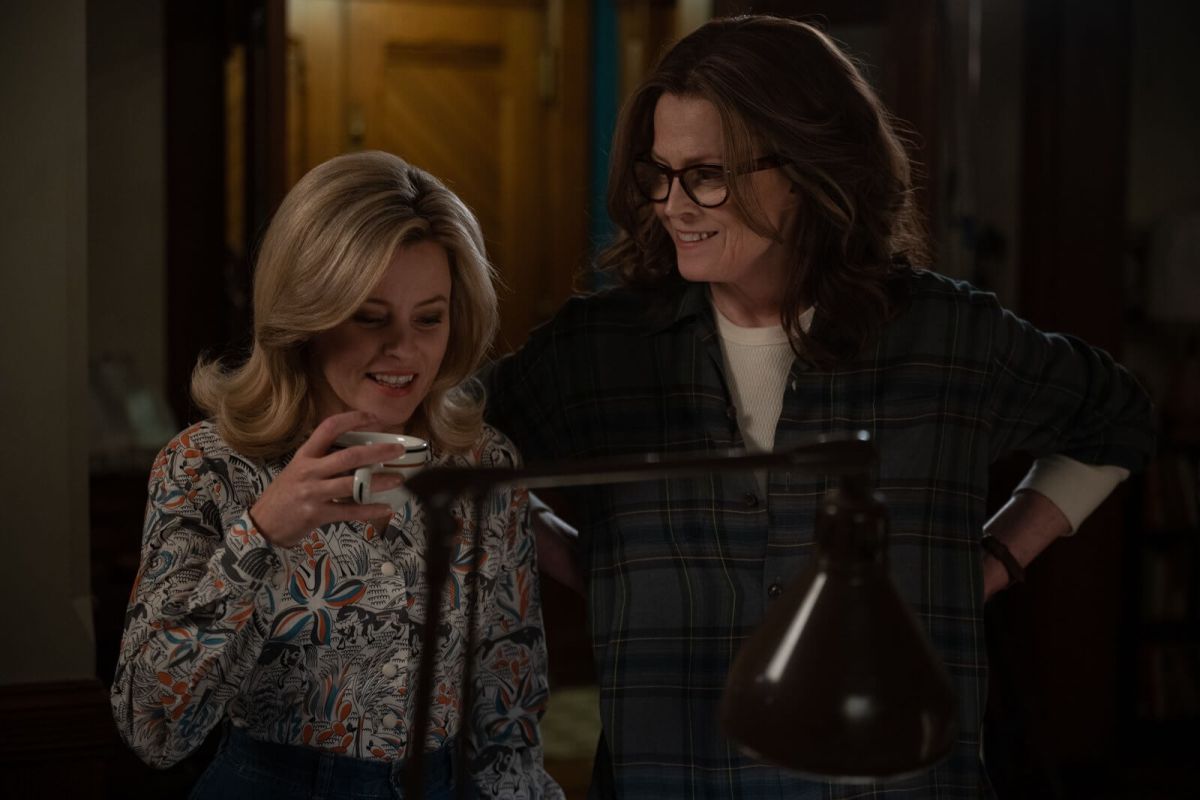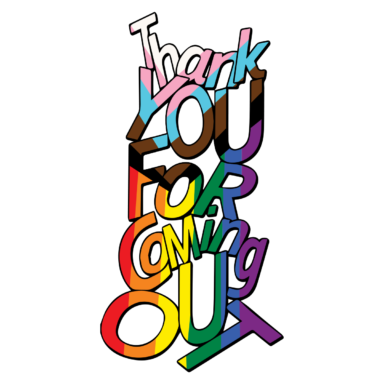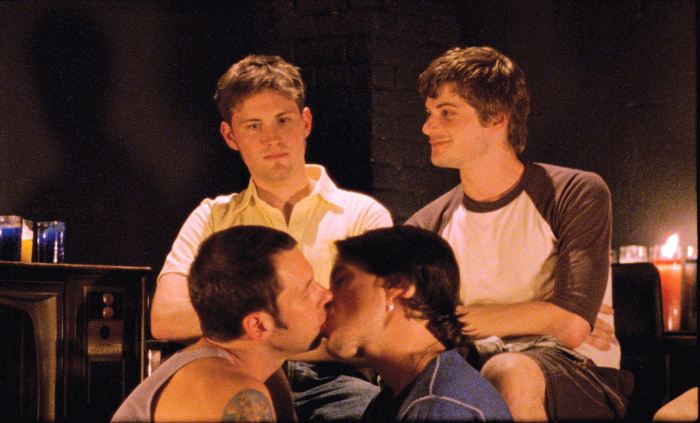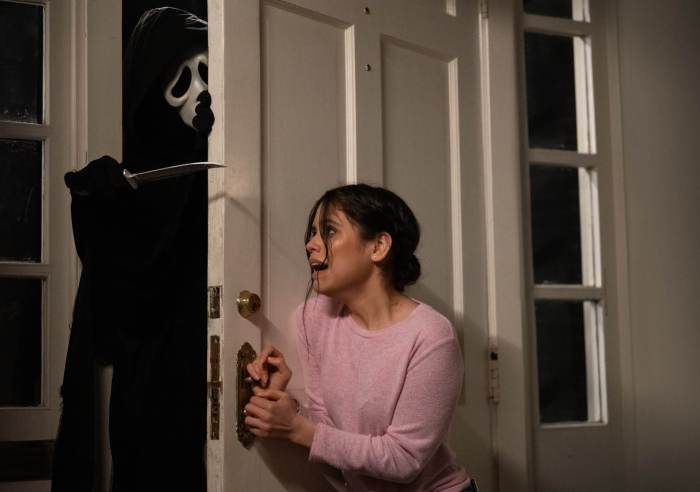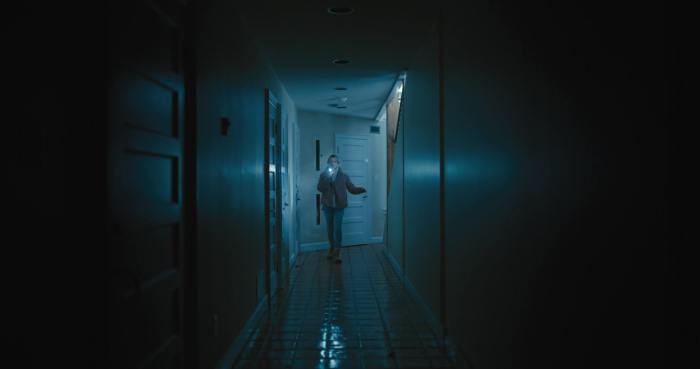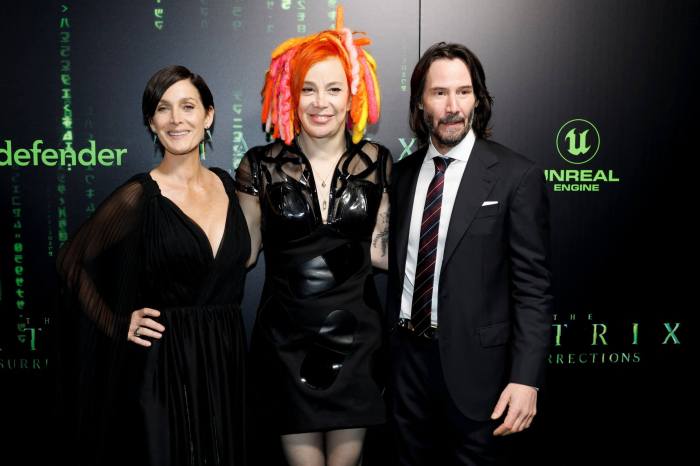The “Jane” of “Call Jane,” the second feature directed by lesbian playwright and screenwriter Phyllis Nagy, is a group of women, not a single person, but you could be forgiven for thinking that she’s Joy (Elizabeth Banks.)
Placing a fictional character into the real Jane Collective, who procured illegal abortions for women in Chicago during the late ‘60s and early ‘70s, “Call Jane” describes the radicalization of a woman who initially ignores (or is merely curious about) police beating protesters just outside the door of the hotel where she and her husband Will (Chris Messina) are holding a party to celebrate his promotion to partner at his law firm.
Until she suffers severe health problems due to a pregnancy she welcomes, the politics brewing around her could be viewed as extraneous to her life. After collapsing while dancing in her kitchen, she learns that she’s developed heart problems which require an abortion to protect her life. Facing an all-male board of doctors, she’s refused the chance to get one legally. Spotting a flyer on a telephone pole, she calls Jane’s abortion referral service and gets the procedure done. She befriends the women who run it, including Virginia (Sigourney Weaver) and Gwen (Wunmi Mosaku), eventually becoming a core member.
Given the subject matter, “Call Jane” does its best to be accessible and entertaining, while completely avoiding arguments about the ethics of abortion and “safe, legal and rare” defensiveness. Often, media about abortion inaccurately suggests that teenage girls are the group of people most likely to seek one, but “Call Jane” realistically portrays an adult woman who already has one daughter needing the procedure. Banks gives an engaging performance as a woman whose life gradually becomes enriched by her participation in politics. The period setting is spare, but Nagy’s style evokes Hollywood films of the period. With dyed blonde hair, Joy could be the hero of a ‘50s melodrama.
“Call Jane” avoids obvious music choices (although Joy enjoying the Velvet Underground’s “Sister Ray,” found in her teenage daughter’s record collection, is an inspired touch), picking relatively obscure songs by women. No “Fortunate Son,” “White Rabbit” or “Purple Haze” here, thankfully! Even so, a few scenes, such as the one in which Joy gets stoned for the first time and giggles afterwards as she leans out a car window, feel like obligations for depictions of the ‘60s, but the film avoids showing much of the outside world. The Jane collective dwells in a gender-segregated space; one member complains about the misogyny of male radicals being no different from conservative men.
“Call Jane” does not ignore the tensions of class, race, and sexual orientation among the women of Jane. The fact that Gwen is the only Black woman sticks out, as does a line about “activist dykes.” The poverty of women seeking abortion recurs. But it sticks to Joy’s story. The film uneasily balances the tension between ‘60s collectivism, leading up to the start of second wave feminism, and the individualism of the present day. “Call Jane” premiered at Sundance last January alongside the documentary “The Janes,” which streamed on HBO Max, and the two both complement and contrast each other. Nagy’s film needs Joy as an entry point for the viewer, assumed to be someone with a similar perspective, while “The Janes” depicted a collective with no central character. Her entry into activism is presented as a personal triumph; she eventually takes over the task of performing abortions herself, making Jane all the more reliant on her, and stares down a scummy undercover cop. The ending of the film is more upbeat than the reality Jane faced; they were saved from prosecution in 1972 by the Roe v. Wade ruling.
“Call Jane” isn’t adventurous filmmaking. Nagy wrote the script for Todd Haynes’ “Carol,” but she lacks his knack for genre pastiche. While it could be a made-for-cable movie from the ‘90s, it beats with an urgency that couldn’t entirely have been predicted when it was written and shot. Now that the Supreme Court has struck down Roe v. Wade, the final scene’s triumphant celebration smells rotten. Even the references to teenage girls’ ignorance of their own bodies and lack of sex education — one, seeking an abortion, thought she couldn’t get pregnant because she and her boyfriend had sex standing up — hardly seem dated. Its characters have good reason to celebrate at the end, but while they won the battle, they may have lost the war.
“Call Jane” | Directed by Phyllis Nagy | Roadside Attractions | Opens Oct. 28th

